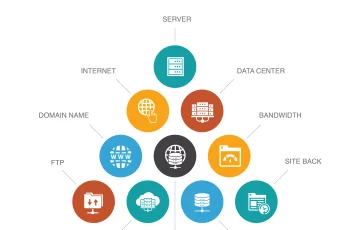In the digital age, where the internet plays a pivotal role in our daily lives, the concept of hosting is fundamental to the functioning of websites and online applications. Whether you are a business owner, a web developer, or an individual looking to establish an online presence, understanding what hosting entails is crucial. In this article, we will delve into the intricacies of hosting, exploring its definition, types, and the key components that make it an essential part of the online ecosystem.
H2: What is Hosting?
At its core, hosting refers to the process of storing and serving website content, making it accessible to users on the internet. A hosting service provides the necessary infrastructure for websites to be visible and functional. This infrastructure involves servers, storage, and network connectivity. When someone types a web address into their browser, the hosting server responds by delivering the requested web page to the user’s device.
H3: Types of Hosting
Hosting services come in various types, each catering to different needs and preferences. Here are some common types of hosting:
H4: Shared Hosting
Shared hosting is like renting a room in a shared apartment. Multiple websites share the same server resources, making it a cost-effective option for small businesses and individuals. However, the shared nature of resources can lead to performance issues if one website consumes too many resources.
H4: Virtual Private Server (VPS) Hosting
VPS hosting provides a virtualized private server within a larger physical server. It offers more control and resources than shared hosting. Users have their own virtual environment, ensuring better performance and security. VPS hosting is suitable for businesses that need more flexibility and control over their hosting environment.
H4: Dedicated Server Hosting
In dedicated server hosting, a user leases an entire physical server exclusively for their website or application. This provides maximum control, performance, and security. Dedicated hosting is ideal for large businesses with high traffic websites or resource-intensive applications.
H4: Cloud Hosting
Cloud hosting utilizes a network of interconnected virtual and physical servers to distribute resources. This type of hosting offers scalability, flexibility, and reliability. Users pay for the resources they consume, making it a cost-efficient option for businesses with varying resource needs.
H3: Key Components of Hosting
To comprehend hosting fully, it’s essential to understand its key components. These elements work together to ensure the seamless functioning of websites and applications.
H4: Servers
Servers form the backbone of hosting infrastructure. These powerful computers store website data, files, and applications. When a user requests a web page, the server processes the request and delivers the relevant content to the user’s device.
H4: Storage
Storage is where all the data related to a website is stored. This includes files, images, databases, and more. Hosting providers use various types of storage solutions, such as Solid State Drives (SSD) or Hard Disk Drives (HDD), to store and retrieve data quickly.
H4: Bandwidth
Bandwidth refers to the amount of data that can be transferred between the hosting server and users within a specific time frame. It is a crucial factor in determining how quickly a website can load and respond to user requests. High bandwidth ensures a smooth user experience, especially for websites with heavy traffic.
H4: Domain Name System (DNS)
The Domain Name System translates human-readable domain names (like www.soluciton.com ) into IP addresses that computers use to identify each other on the internet. Hosting providers manage DNS settings, ensuring that users can access websites using their familiar domain names.
Conclusion
In conclusion, hosting is the backbone of the internet, enabling websites and applications to thrive in the digital landscape. From shared hosting for small businesses to dedicated servers for large enterprises, the diverse hosting options cater to a wide range of needs. Understanding the key components of hosting, including servers, storage, bandwidth, and DNS, is crucial for anyone venturing into the online world.
As technology continues to advance, hosting services evolve to meet the growing demands of an ever-expanding digital universe. Whether you are a novice exploring the online realm or a seasoned professional managing complex web ecosystems, the knowledge of hosting is essential for a successful online presence. Stay informed, choose the right hosting solution for your needs, and pave the way for a seamless and efficient digital experience


